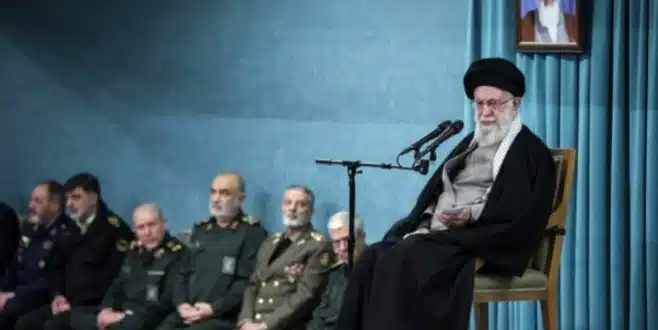In 2015, Israeli Prime Minister Benjamin Netanyahu vocally opposed the U.S.-Iran nuclear agreement, delivering a notable address to the U.S. Congress without prior coordination with the Obama administration. A decade later, as the United States under President Donald Trump re-engages in nuclear negotiations with Iran, Netanyahu’s public stance has notably shifted to a more subdued approach.
Strategic Silence Amid Renewed Diplomacy
Netanyahu has long perceived Iran’s potential acquisition of nuclear weapons as an existential threat to Israel. However, his current restraint is influenced by the complex dynamics of the U.S.-Israel relationship under Trump’s leadership. Trump’s administration has demonstrated strong support for Israel, including military backing and diplomatic alignment. This support, coupled with Trump’s sensitivity to criticism, has led Netanyahu to avoid public opposition to the renewed talks with Iran.
Despite Israel’s recent strategic gains against Iranian proxies in the region, Netanyahu faces limitations in pursuing unilateral military action against Iran’s nuclear infrastructure. The ongoing U.S.-Iran negotiations reduce the legitimacy of any independent Israeli military initiative, especially without explicit American support. Netanyahu’s preference for a diplomatic resolution that includes the complete dismantling of Iran’s nuclear capabilities aligns with his historical advocacy for stringent measures, akin to the disarmament model applied to Libya in 2003.
Complexities of U.S.-Iran Negotiations
The current U.S.-Iran discussions, informally referred to as “JCPOA 2,” aim to prevent Iran from developing nuclear weapons in exchange for sanctions relief. While the proposed agreement includes enhanced verification measures and extended terms, key issues remain unresolved, such as Iran’s uranium enrichment capacity and ballistic missile program. Iran maintains its right to enrich uranium for peaceful purposes but has expressed willingness to reduce stockpiles and allow more intrusive inspections.
The negotiations have faced setbacks, including the postponement of planned talks and the imposition of new U.S. sanctions targeting Iran’s oil exports. These developments have strained the diplomatic process, with Iran attributing delays to external pressures and internal sabotage. Despite these challenges, both the U.S. and Iran have indicated a continued interest in reaching a comprehensive agreement.
Navigating Diplomatic and Military Options
Netanyahu’s current strategy involves close coordination with the U.S. administration, emphasizing shared objectives while refraining from public dissent. He has communicated to Trump the necessity of a deal that ensures Iran cannot develop nuclear weapons or ballistic missile capabilities. However, the possibility of a military confrontation remains on the table should diplomatic efforts fail. Trump has indicated that, in such a scenario, Israel would take a leading role in any potential military action, with U.S. support contingent on the circumstances.


